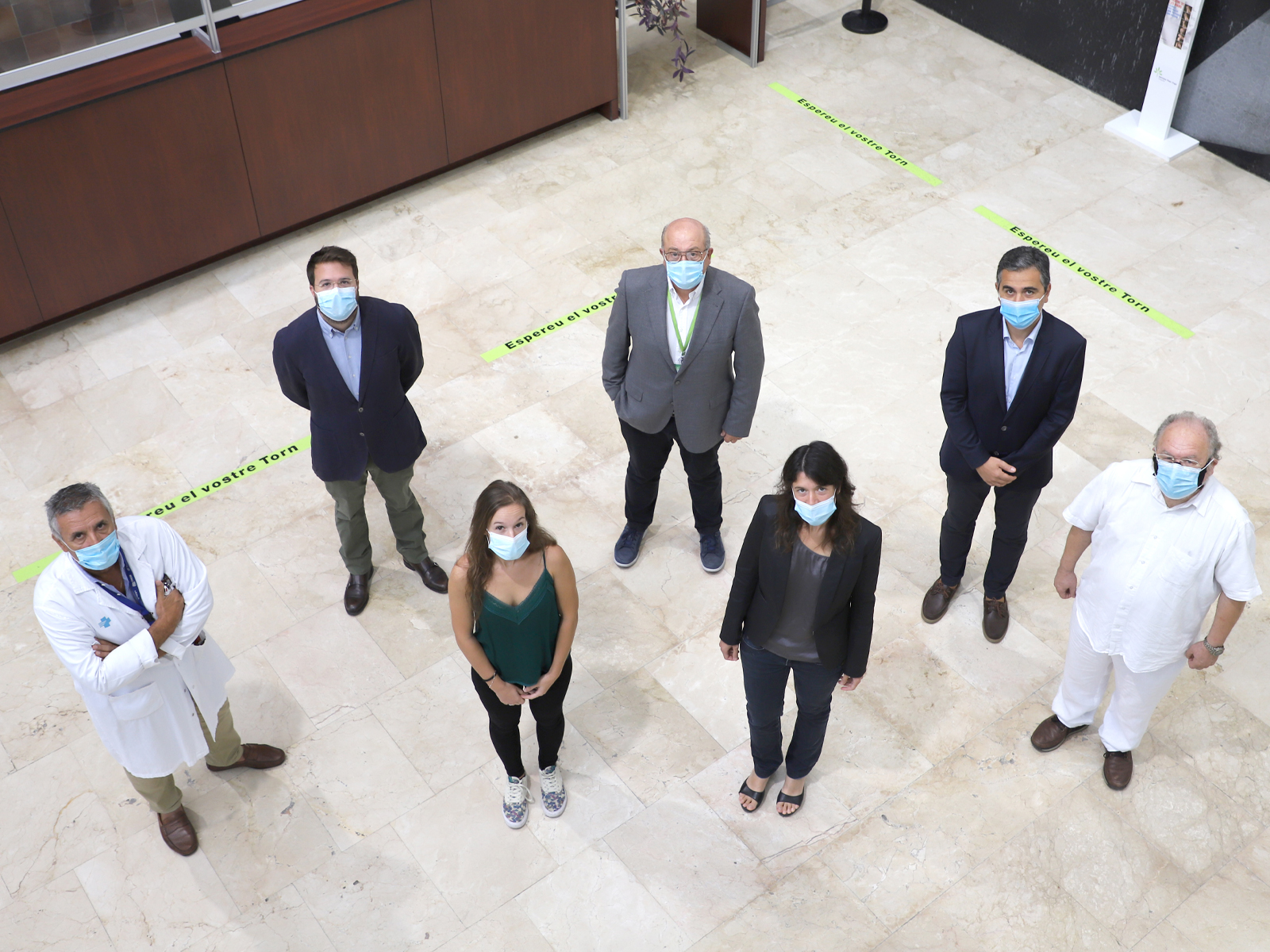A new IGTP spin-off to develop a medical device for improving the diagnostics and prognostics of acute ischaemic stroke

Researchers from the Germans Trias i Pujol Research Institute (IGTP) together with doctors from the hospital have developed a medical device to improve the diagnostics and prognostics of acute ischaemic stroke. The objective of the technology is to optimize the current clinical algorithm for this type of ictus so that medical staff can take the correct decisions for each patient, before and after admission to hospital. To develop the medical device the spin-off company Time is Brain, led by Dr Alicia Martínez-Piñeiro has been created by the IGTP.
Stroke is one of the great pandemics of the XX century; 15 million people are calculated to suffer a stroke in the world every year. In particular the ischaemic type of stroke is the second cause of death and the first cause of acquired disability in adults. This type of vascular accident in the brain is caused by the blockage of an artery, which stops blood flowing correctly to the brain and causes symptoms which can be irreversible if prompt action is not taken. In fact, more than 50% of patients with acute ischaemic stroke have permanent after-effects which disable them for life, despite having received the standard treatment.
The group led by Dr Antoni Dávalos, Dr Jaume Coll-Cantí and Dr Alicia Martínez-Pineiro has been studying the predictive capacity of several biomarkers for functional recuperation previous to treatment for acute ischaemic stroke. From these studies they have developed a point-of-care medical device (POC) which registers data from the patient directly. This device is able to monitor a biomarker which the researchers have been able to validate as a prognostic indicator of mechanical thrombectomy. The information collected by the device allows the medical staff to have prior data to evaluate what actions to take, this allows them to make better therapeutic decisions. "The final objective of the device is to be able to offer more information to the doctor at the moment of deciding the best treatment for each patient. Having this information as early as possible is vital for making decisions, we can reduce long-term after-effects," explains Martínez-Pineiro. "In this type of vascular accident, gaining time to avoid long-term damage is key: time is brain is a popular expression in the treatment of ictus, because gaining time avoids damage and thus the name of the company," she adds. Currently they are working on the development of the device to then carry out clinical validation. The aim is to have the product on the market in two years' time.
The spin-off Time is Brain of the IGTP was created in July 2020. The team responsible to bring the project to fruition is multi-disciplinary and includes international opinion leaders on stroke such as: Dr Antoni Dávalos Errando, in neurology and functional tests of the nervous system; Dr Alicia Martínez-Piñeiro and Dr Jaume Coll-Cantí with the support in innovation and development from Marc Cusachs Farraro and Raül Zurita Badosa and in technical development Dr Gisela Ruíz Vega.
The project, now and official company, has been able to carry out the development with the support of grants from La Marató de TV3, CaixaImpulse (Fundació "la Caixa") and Headstart (EIT Health). It has been selected for the acceleration programme Ship2B.
